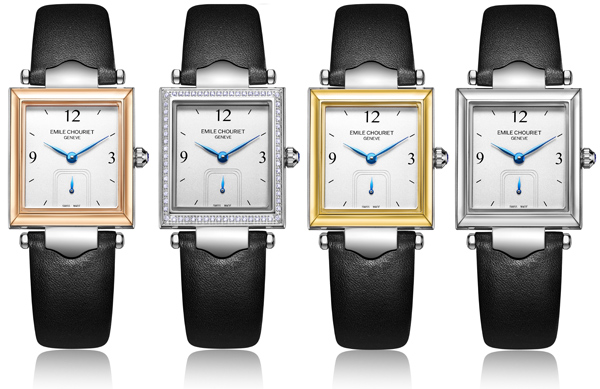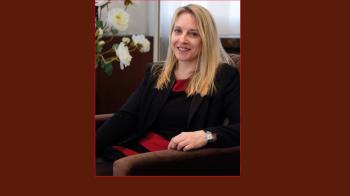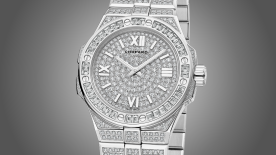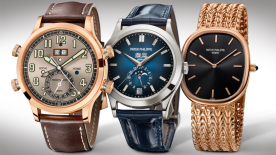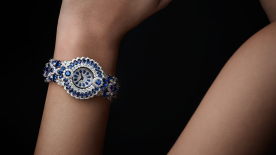Since the retirement of Jean Depéry, founder of the Emile Chouriet brand, Melinda Alessi has been in charge of the Geneva watch manufacture. This dynamic watch company boss, who’s also a mother of three, agreed to talk to us about her role as a female manager.
How did you come to your position as head of Emile Chouriet?
When I arrived at Emile Chouriet I was in sole charge of the administration, finance and human resources. As the company gradually became more successful, I put in place a new ERP system and coordinated the growth of the entire organisation. Subsequently, in 2017, I took over the sales department. After gradually gaining Jean Depéry’s trust, I was appointed site director.
Has the fact that you’re a woman helped you in your professional career, or do you feel it’s held you back?
Neither. Within the company there has never been any positive or negative gender discrimination, whether in terms of salary, or the positions we’re given, and I’ve never felt any difference in the way men and women are treated. The fact that Mr Depéry has two daughters might have something to do with this equality. In my case, things happened naturally.
What is the gender breakdown within Emile Chouriet in Geneva?
Emile Chouriet employs 12 women and 6 men in Geneva. On the women’s side we have the head of communication, artistic director, logistics manager, sales manager, the administrative manager, who’s my right arm, three watchmakers and three people in quality control. For the men, there’s the COO, whom I rely on for all things operational, a technical manager, a watchmaker and three watch operators.
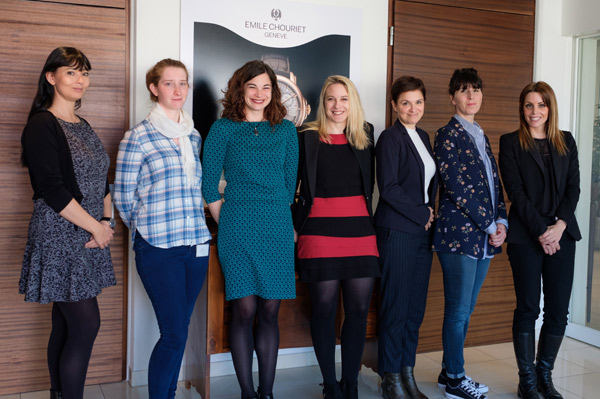
In comparison with other companies I know, I’d say there are proportionally more women in positions of responsibility at Emile Chouriet. You generally see more men. But maybe women are more discreet, and tend to stay more in the background? [laughter] But I must admit, for managerial positions we tend to receive more applications from men than from women. I think it’s also a matter of education. Women have to learn to feel comfortable in positions generally considered to be more masculine; they need to put themselves forward more.
We’ve recently seen women appointed as CEOs at Jaeger-LeCoultre, Piaget and de Grisogono.
Indeed. I think the macho barriers are coming down. And things are changing in the other direction, too: we’re seeing more men staying at home to look after the children. The distinction between masculine and feminine roles is becoming more blurred. Today, if someone has the necessary skills, they can rise as far as those skills will take them, and I think that’s how job appointments are made. But there are still some stubborn areas where women carry the majority of the “mental load”. Despite the presence of men in the home, it tends to be women who assume this emotional burden.
Do female managers have specific strengths and weaknesses?
I think women have a different sensitivity – and I’m not saying that men can’t be sensitive – and in some cases that can be a weakness. In terms of strengths, I think that women can be far more versatile within an organisation. We’re capable of managing our private life, our family and children – that’s what I mean by mental load – as well as our professional lives. I think that’s something still strongly associated with women.
As a woman, how do you manage your relationship with your Chinese shareholders?
Very well. The chairman of the board is a man, but there are lots of women in high-level positions. It’s not a shock for them to see a woman director. I haven’t noticed any difference between China’s business culture in terms of women, and ours.
It’s often said that watchmaking is a man’s world.
It’s true that there are far more male watchmakers than female watchmakers in the industry. You see that very clearly in the watchmaking schools, for example. Some watchmakers stand out from the crowd, and they have earned a name for themselves by creating exceptional pieces. When a female watchmaker succeeds in showing their talents, things will start to change. And there’s another male preserve: more and more women appreciate fine watches, but not to the point of developing an interest in the mechanical side of watchmaking. But there are a few, nevertheless. There are also some excellent women watchmakers who have the skills to design their own watches, but they have remained in the background, and perhaps don’t dare to come forward. In the watch industry you find more women in design. That’s the case for Emile Chouriet, in fact. Sophie Depéry is our artistic director. So there’s a woman behind all our designs, and I think that has inspired the somewhat feminine side to our watches.
What is your favourite watch in Emile Chouriet’s collections?
The Mr Right, no question. The reason is the story it tells – that of an independent woman in charge of both her private and her professional life. Because of its character, it’s the watch that appeals the most to me. But I also like the Lac Léman watches, particularly the men’s calibres. Compared with our competitors, we’re fortunate that we have a highly developed women’s collection. Our first in-house movement was a women’s calibre. And even our men’s watches have an androgynous quality, which makes them easy for women to wear.
